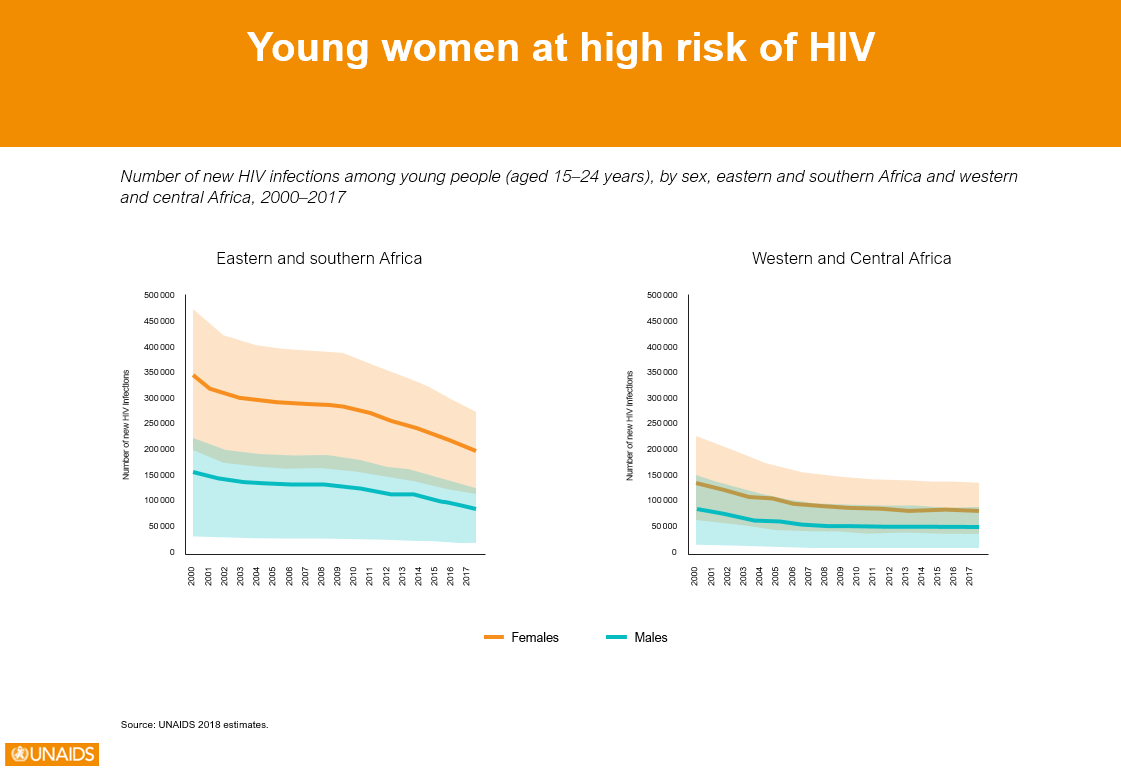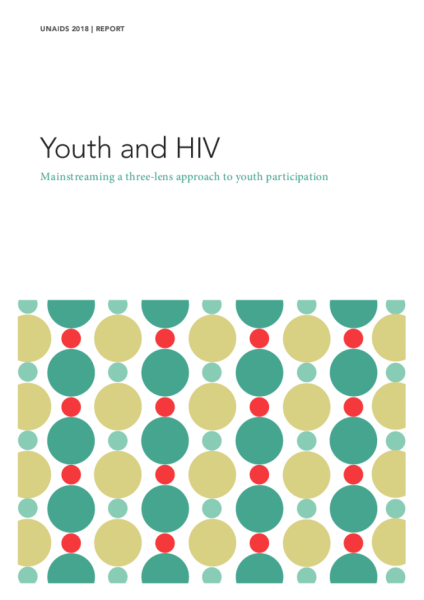This story was first published by UNFPA
Windhoek, NAMIBIA - Sometimes it is best to go where everyone does not know your name, but where you feel welcome just the same. It is that way for many sex workers and men who have sex with men (MSM) in Namibia, who bear the brunt of criticism, repulsion and stigmatism in almost all aspects of their daily lives.
As a result, these men and women shy away from accessing essential health services, such as HIV testing/treatment, prophylaxis (PrEP), condoms, lubricants and contraceptives.
According to the first ever integrated bio-behavioral surveillance study (IBBSS) 2014, among MSM in Namibia, HIV prevalence among MSM was estimated to be 10.2 per cent in Keetmanshoop, 7.1 per cent in Oshakati, 10.1 per cent in Swakopmund/Walvis Bay, and 20.9 per cent in Windhoek the capital city.
The estimated HIV prevalence estimated among MSM in Oshakati and Swakopmund/Walvis Bay approximated that of the general population of adult males in the surrounding Oshana and Erongo regions, as measured by the Namibia Demographic and Health Survey, 2013.
HIV prevalence among MSM in Keetmanshoop was slightly lower than that of the general population of adult males in Karas Region, while HIV prevalence among MSM in Windhoek was nearly twice as high as HIV prevalence among adult males of the general population in Khomas Region.
Non-judgemental care
In 2018, the Namibia Planned Parenthood Association (NAPPA) with support from United Nations Population Fund (UNFPA) Namibia convened several advocacy meetings with key partners aimed at establishing a drop in centre at the Out Right Namibia offices.
Out Right Namibia is a Namibian organisation working with the lesbian, gay, bisexual, transgender and intersex (LGBTI) community aimed at advancing the rights, interests and expectations of the LGBTI community in Namibia.
Both the drop in centre and NAPPA Okuryangava clinic had flexible working hours to allow key population to access sexual and reproductive health (SRH) and HIV services at their convenient times, it also involved opening the clinic on Saturdays to allow key population to access services without fear of stigma and discrimination.
All service providers and staff at the drop in centre and clinic were trained and sensitised on the importance of quality, non-judgemental service provision to key population. The staff at Outright Namibia were also mobilised to build awareness and information about the services being provided at the drop in centre and clinic.
Pleasant experience
“I have had a very pleasant experience visiting NAPPA. As a sex worker, it is important that I feel comfortable and go to clinics where I’m free of judgement. NAPPA has opened their doors for me and I feel at home. There are no complications here as the services are free and I prefer this clinic over local hospitals,” said sex worker, Martha Keto (not her real name).
Keto, 30, has been a sex worker for almost 12 years and has been receiving PrEP treatment at the clinic since October 2017. ”I come regularly for my tests and for PrEP treatment which keeps me protected from contracting HIV. The testing I receive here not only keeps me updated on my HIV or STI status, but it keeps up with my overall health. I am informed about a lot of health information including my liver and the nurses are even able to tell if my alcohol consumption is too high,” she said.
“The staff at the clinic are very friendly. I am an old client so they all know me very well. I would recommend NAPPA services to my colleagues who are also workers. Their doors are always open for us, even during weekends we are able to come in if needed. There is a large number of sex workers in Namibia and I hope the services provided by NAPPA could be exposed so that more sex workers will be informed of the free services that are offered here,” she said.
Keto’s sentiments are shared by Cinton Nati and Gideon Markus, (not their real names) who are both homosexual males receiving services at the NAPPA clinic.
“If it had not been for the friendly staff at the NAPPA clinic and their constant support and encouragement, I would have not visited the clinic as recommended by the nurse,” said Nati. He said this made it easy for him to develop a personal relationship with the clinic’s staff because they were very encouraging and as a result, he was able to see major improvements not only in his health but also his confidence.
Prior to visiting NAPPA, Nati experienced emotional and mental difficulties associated with being newly diagnosed with HIV. As a result, he would often miss his appointments as he found it difficult to accept the reality of being newly diagnosed with HIV.
“Since the very first time my partner and I went to the NAPPA clinics, both at Out Right Namibia and at Okuryangava, we have been treated very well and the staff have gone out of their way to make us feel safe. I have had counselling sessions to make sure that I am doing alright and also checkups to make sure the medication is not having any side effects on my body and that I remain healthy. The staff at the clinics have also regularly checked that we understand how to look after ourselves and that we practice sound sexual health guidelines,” said Markus.
“Each time we visited the clinic at Okuryangava, Sister Fungai Bhera (Senior Registered Nurse) would first make time to chat to us about how we have been. This might sound like a small thing to others, but to me, it means the world as I know she cares about us and that I am taken care of and in safe hands,” said Van Den Berg.
He alluded: “LGBTI community in Namibia has never had proper support from our country’s leaders and as a result, there is still a lot of LGBTI people that get discriminated against and live in fear of their communities as we do not enjoy the same legal rights. Hence we live very secretive lives, sometimes even double lives. I think it is these secret lives that make it easy for LGBTI people in Namibia to land in situations where they are highly vulnerable to getting infected with HIV and other sexually transmitted infections.”
More KPs accessing services
In 2018, a total of 523 KPs were reached with sexual and reproductive health services at the two sites. This included 233 sex workers, 188 men who have sex with men 70 truck drivers and 32 women who have sex with women. A total of ten outreach events were held targeting KPs at various hotspots in Windhoek.
The comprehensive service package provided at the two sites included: HIV testing and counselling, those who tested positive were immediately enrolled for treatment; PrEP services, those who tested negative were also counselled and informed about PrEP services and those who agreed were enrolled on PrEP; family planning services including condoms; sexually transmitted infections (STIs) screening and treatment; and information education related to SRH, HIV and gender-based violence.




